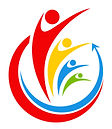How We Help
Lead Upwards uses a number of different approaches and techniques to deliver its services to individuals and teams.
Coaching
There is often confusion around exactly what coaching is (and also what it isn't). Coaching is client-centred, future-focused, advice free and judgement free. It is based on the idea that the client has all of the resources needed to accomplish their goals. The coach uses a variety of techniques (including, but not limited to, questioning, clarifying, the REACH model for a structured session, and tools such as the Disney Model, the Mentors’ Table, values exploration exercises).
A deep and subtle advantage of coaching over other techniques (mentoring, teaching, consulting) is that as all of the content and actions have come from within the client, the client has far greater ownership of these items, and is therefore more likely to actively work on achieving their desired outcomes.
To close the circle, coaching is not: mentoring (using the mentor’s expertise to guide the client), consulting (using the consultant’s expertise to put in place a solution for the client); teaching or training (using the teacher’s knowledge to educate the client); or counselling or therapy (focused on resolution of problems in the past).
Herrmann Brain Dominance Instrument (HBDI)
The HBDI is used to better understand and define a person’s thinking preferences. Through a 30-minute online survey, the HBDI delivers an understanding of your preferred ways of thinking, and – intriguingly – how these change when you are under pressure. It provides guidance and advice on your (and others') preferred communication styles, approaches to problem solving, and how you make decisions.
The HBDI is available for individuals, for pairs, and for teams. Pair profiles provide detailed analysis of where individuals are similar and where they differ. This leads to deep and effective conversations for bringing the two people closer together, whether the relationship is professional or personal. Team profiles provide an opportunity to see at a glance where the team’s collective strength and weaknesses lie – and also identifies key team members for particular situations.
The HBDI is judgement free – all types of thinking are valuable, and having a diverse range of thinking styles in a team provides a variety of insights and can avoid groupthink. Delivering repeatable and valid results, HBDI has been re-validated regularly over the last 30 years in line with standards set by the American Psychological Association and the American Educational Research Association.
Simulations
Lead Upwards can provide a fun and challenging all-day or half-day simulation for your team and stakeholders. Imagine running a different organization for a day! Imagine, also, that you are able to spend this in a role substantially different from your day-to-day role. Following the Deming cycle (Plan-Do-Check-Adjust) throughout the day, simulation participants will get an opportunity to spend a day walking in someone else’s shoes, learn from each other, and also learn about each other.
The simulation is from industry leader G2G3, and caters for up to 16 people per simulation. Lead Upwards has experienced facilitators in this simulation, to allow for maximum value to be derived for you. Having careful and engagingly facilitated discussion sessions means that learnings from the participants can be contextualized to your specific needs. The half-day simulation covers three financial years for the organization, and the full day simulation four financial years – with some extra spice added!
KEPNERandFOURIE™ Critical Thinking Technologies
The K-F framework provides for structured problem solving. Depending on the nature of the issue at hand, one or more of the five processes within the framework can be used:
-
ThinkingWise: Used when the problem is vague or not well-defined;
-
PriorityWise: For when you need to understand the dependency between a number of interrelated tasks or activities;
-
SolutionWise: Given a problem and multiple solution options, which one do you pick? This process provides a structured approach to picking the best solution;
-
CauseWise: To understand the root cause of a technical problem;
-
RiskWise: To provide a defensible approach to risk management.
Team Building
Whether you want to run a stand-alone team building session, or incorporate team building activities into a facilitated workshop, Lead Upwards is able to help. It doesn’t matter whether you are after simple but powerful in-room exercises to more extravagant team building events; or if you are looking for stand-alone team building exercises, or have them incorporated as part of retreats and workshops that we run.
If you are unsure where to start, we can help with some initial questions to understand what you are wanting to get from the session, and provide appropriate options for you.
Facilitation
You are running a workshop, and as the sponsor, you feel as though you have to physically run it. This means you have to be neutral, cannot participate like the others in the team, and it maintains the distance between you and the rest of your team.
Lead Upwards is able to provide broad based facilitation services to you. We offer bespoke solutions, incorporating 25 years’ experience in running sessions of varying sizes and complexity. All facilitation services follow the Deming cycle: we meet with you beforehand to map out an agreed path; we run the session; and we meet with you afterwards to debrief to enable maximum value to be derived from your session.

